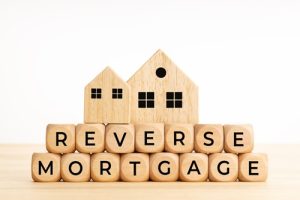 Retirement brings with it a host of financial considerations. And for many, exploring options like reverse mortgages seems like a beacon of hope amid uncertainty. But, let’s pause for a moment. And, let’s delve into the human side of this decision. In this guide, we’ll walk through five essential factors to consider before diving into the world of reverse mortgages. Of course, your financial well-being is deeply personal, and it deserves careful consideration.
Retirement brings with it a host of financial considerations. And for many, exploring options like reverse mortgages seems like a beacon of hope amid uncertainty. But, let’s pause for a moment. And, let’s delve into the human side of this decision. In this guide, we’ll walk through five essential factors to consider before diving into the world of reverse mortgages. Of course, your financial well-being is deeply personal, and it deserves careful consideration.
What You Need To Know About Reverse Mortgages
1. Impact on Heirs’ Inheritance
Picture this, you’ve worked hard your whole life to build a home and provide for your family. But, what happens when you’re gone? The idea of leaving behind a legacy for your heirs is a cherished one, but a reverse mortgage could potentially put that at risk. And, your children, who may have been counting on the value of your home, could find themselves with nothing if the loan balance exceeds the property’s value. It’s a sobering thought. Additionally, it’s one that warrants a heartfelt conversation with your loved ones. Also, you should talk about your wishes and the potential impact of a Myrtle Beach reverse mortgage on their inheritance.
Read More Factors To Consider Before Getting Reverse Mortgages
 Let’s delve into the world of reverse mortgage and explore how it works.
Let’s delve into the world of reverse mortgage and explore how it works.
 A
A  Retirement brings with it a host of financial considerations. And for many, exploring options like reverse mortgages seems like a beacon of hope amid uncertainty. But, let’s pause for a moment. And, let’s delve into the human side of this decision. In this guide, we’ll walk through five essential factors to consider before diving into the world of
Retirement brings with it a host of financial considerations. And for many, exploring options like reverse mortgages seems like a beacon of hope amid uncertainty. But, let’s pause for a moment. And, let’s delve into the human side of this decision. In this guide, we’ll walk through five essential factors to consider before diving into the world of  A
A Seniors who need extra cash or income to cover unexpected expenses can borrow against their home equity? Yes! They can get a loan that is known as a
Seniors who need extra cash or income to cover unexpected expenses can borrow against their home equity? Yes! They can get a loan that is known as a  The casino is a suitable place to roll the dice and take your chances. However, gambling with the security of your largest asset and risking the roof over your head is not. In this blog, we’ll discuss
The casino is a suitable place to roll the dice and take your chances. However, gambling with the security of your largest asset and risking the roof over your head is not. In this blog, we’ll discuss  When it comes to
When it comes to  When it comes to exploring home financing options, the concept of r
When it comes to exploring home financing options, the concept of r Those with fixed resources tend to overlook the possibility of tapping the equity of their home. With the home equity that seniors can access,
Those with fixed resources tend to overlook the possibility of tapping the equity of their home. With the home equity that seniors can access,  When it comes to financing home expenses, many older homeowners consider a
When it comes to financing home expenses, many older homeowners consider a